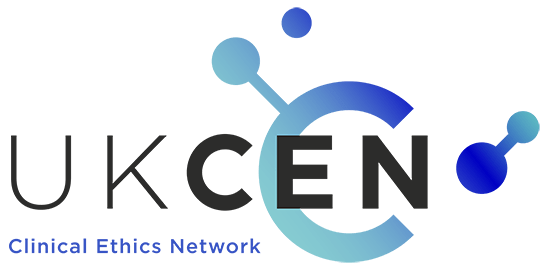Case Consultation
CECs are multidisciplinary groups, which (amongst other functions) can advise clinical teams on the ethical aspects of patient care.
Whilst CECs cannot make the final clinical decision, they can offer helpful advice to clinical teams. CECs can help teams to identify and articulate ethical questions, clarify ethical arguments, weigh up possible alternative courses of action, offer an external perspective on complex issues and, on occasion, challenge the clinical team on what might be felt to be potentially controversial courses of action. They can also support healthcare professionals dealing with the moral distress that they can experience when making ethical decisions. Some CECs offer a rapid response service for urgent cases.
Example: Liverpool University Hospitals NHS FT CEC
The Liverpool University Hospitals NHS FT Clinical Ethics Committee (LUHFT CEC) was established in 2012 at the former Royal Liverpool and Broadgreen Hospitals and is supported by the holder of a substantive post of Clinical Ethicist. The CEC aims for a membership in the region of fifteen people and, in order to reflect the breadth of clinical services in the host Trust, it tries to avoid duplication of clinical specialism in the membership. It reports its business through the governance structure of the Trust and it operates in accordance with ratified terms of reference and a standard operating procedure for consultations.
As a staff-facing advisory group of the Trust, the primary function of the CEC is to support clinical colleagues and the Trust in their handling of ethical issues arising from clinical practice. Clinical ethics support at LUHFT supports existing decision-making processes and it is up to the usual decision-maker to decide how to take into account the advice of the CEC.
Ethical issues are referred to the Clinical Ethicist and can be considered at monthly scheduled meetings of the CEC or by a Rapid Response Team (RRT), which will respond within two or five days. If a rapid response is required, the Clinical Ethicist contacts members to establish who is available and the RRT meeting is convened if the minimum attendance required by the standard operating procedures can be achieved. Referrals are usually made on the CEC referral form but can be made verbally or by email if necessary. CEC responses are either made on the CEC response form, by direct entry in a patient record, or by email if appropriate.
Clinical ethics support can also be provided by the Clinical Ethicist. This will sometimes be appropriate when relatively straightforward cases do not require wider consultation. The option of direct involvement of the Clinical Ethicist also ensures that clinical ethics support can be provided in “ward-based” contexts such as “best interests” meetings or case conferences when this is either more convenient for all concerned, or necessary to ensure that the patient’s perspective is adequately represented. The Clinical Ethicist also contributes to various multidisciplinary team (MDT) meetings of the Trust (such as a weekly Feeding Issues MDT, a New Techniques and New Devices Group, and the Trust’s Covid-19 Clinical Reference Group), which improves the visibility of the CEC and enhances its integration within the Trust governance structure.
Referrals to the CEC can be made by any member of the MDT but, when referrals concern specific patients rather than service-level matters, the CEC requires confirmation that the referral is being made by, or with the approval of, the patient’s lead clinician. A mechanism is agreed for ensuring that the views of the patient or their representative are properly reflected, and this will typically dictate the way in which clinical ethics support is delivered, as described above.
You can find further information about these functions, including downloadable resources, in Clinical Ethics Resources and Downloads.
